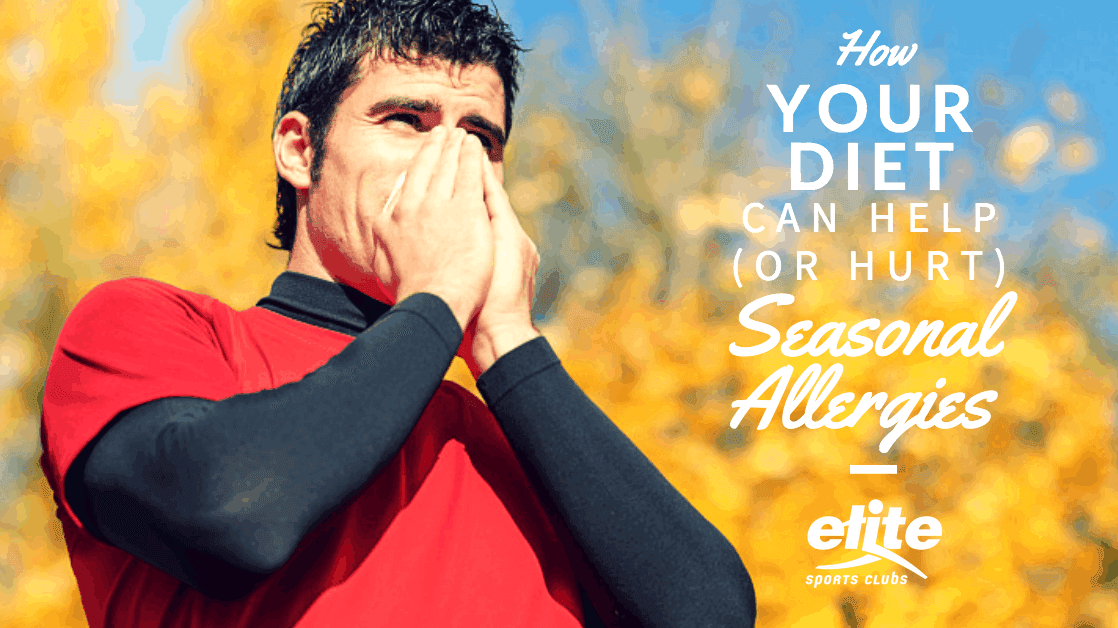
Allergy season is now upon us! Autumn is as active a season for allergies as it is in the spring. While most pollen and irritants circulate themselves on the dry windy days of an Indian summer, it will actually continue into late fall. In Wisconsin, the irritants are considered to be moderate in scope and many people will continue with the symptoms into the holidays. Indoors, we are usually concerned about the buildup of mold during the fall, which will also add to the ongoing nature of our symptoms.
The most common symptoms of seasonal allergies are: dry itching skin, puffy/red eyes, inability to breathe, coughing, even cold and flu-like symptoms, may occur. Medical experts state that all aspects of your life can be interrupted; i.e. sleep, ability to concentrate, and eating. They do recommend staying on your normal schedule for taking medications, and making sure that they are the right ones for you. Most medications take the form of antihistamines and decongestants. Always, seeing your physician before this time of year begins is a good idea.
How are foods going to be affected? And can they help? These are the primary foods to consider for seasonal allergies:
Omega-3-fatty acids found in salmon, and tuna, some other fish lower your chances of getting allergies from early on in life; other studies suggest that eating this type of fish will help relieve the symptoms.
Fruits and vegetables are going to be a good source of relieving symptoms especially for children. Kids in Spain have eaten tomatoes, eggplant, cucumbers, green beans, and zucchini, which are all high in vitamin A and E; and they were able to avoid most allergies throughout the season. While others in subsequent studies found that eating spinach, broccoli, and tomatoes were able to ease the swelling in their airways significantly by a diet of these specific vegetables, according to the research.
Of course, we all know that hot soup and beverages, will help to reduce the swelling in our mucous membranes in our stomach and will help to thin the mucous in our lungs. Most soups, like chicken noodle will carry some sodium in the broth, and this is another soothing ingredient for swollen glands.
There are different types of diets that have been found to be helpful with seasonal allergies; particularly those similar to the Mediterranean Diet. This diet is full of good nutrients from nuts, fruits and vegetables, healthy oils, fish, and red wine. We have known for years that this diet was good for your heart, and now we can say that it will also help you with the control of allergy symptoms. The earlier in life we have these foods, the better we will be in relieving and helping to control symptoms overall. Pregnant women who eat this type of diet will be less likely to have children with allergies too!
Yogurt is another good food source for allergy sufferers. We need to eat yogurt to help maintain the healthy “good” bacteria in our stomachs and intestines (Probiotics). Recent research has shown that yogurt will also help relieve the allergy symptoms throughout the body: runny noses, and congestion. Milk products with “live” cultures will be your best choice.
Some fresh fruits and vegetables will be best if they have the skin removed, such as apples, if you suffer from allergies. This will remove the possibility of having irritants, like ragweed, attach itself to the skins. Other fruits to avoid, are watermelon and cantaloupe during this time.
Lastly, try to keep exercise going to help build your lung strength, as swimming will do. Biking is also great for lungs. Running in the cold weather may work against you, as it can trigger lung spasms and affect airways. Physicians will recommend any sport that you can do without problems breathing.
Body weight can be affected by allergies and asthma, as most individuals with these symptoms can’t breathe well and will look for better energy supplies from the foods they eat. Weight gain is possible during this time because eating schedules are off, and the normal senses of smell and taste are thrown off completely. Eating some of the foods mentioned above should help get through this seasonal, but predictable, time of year.
Written by Rita Larsen, RDN, CD; Elite Sports Clubs Nutrition Educator & Diet Counselor
Rita is certified in Positive Psychology, University of Penn; has a BS in Dietetics from Kansas State University; and an Internship and Masters at the Indiana University Medical Center.
Schedule a Nutrition Consultation